Recycling in offices can range from wastepaper and printer cartridges to kitchen waste and an ever-growing mountain of tea bags, coffee grounds and takeaway cups.
By prioritising recycling in an office environment, you can reduce the amount of office waste you send to landfill, make better use of resources and uphold your environmental responsibility commitments.
In this guide, we'll look at some top tips for recycling in the office, addressing the most common waste streams and some general best practice for office recycling.
Why is office recycling important?
Recycling in offices should be a priority. Whether or not your employees are eco-conscious at home, recycling at work should be an everyday practice.
As a business, you have a legal responsibility to dispose of waste in the correct way, but this is the bare minimum of what you should be doing.
By establishing everyday routines and providing clearly labelled and/or different coloured wheelie bins for office paper recycling, other dry recyclables, kitchen caddies for food waste and so on, you ensure that the correct disposal of waste is second nature for your staff.
Although mistakes will probably happen, this means that you should stay on the right side of your obligations over the long term.
Committing to be a paper-recycling office reduces the likelihood of usable paper going to waste, or paper recycling bins being contaminated by items like used paper coffee cups.
Top office recycling tips
Here are some of our top tips for recycling in offices, to help you reduce waste, recycle better and keep a closer eye on what your workforce throws away.
Assess your office's current recycling practices
Recycling in an office is different from many other workplaces. Office paper recycling can go a long way towards cutting your waste, but it's not the only measure that might help. An office waste and recycling audit is always a good start to identify the common (and occasional) waste streams coming out of your workplace.
Set up a comprehensive recycling programme
Once you know the different types of office waste you produce, set up your workplace recycling programme. This can include 1100 litre wheelie bins and 1280L wheelie bins for large waste streams, 240-360L wheelie bins for medium quantities, and small 120-140L bins for your least common waste streams. We can even supply 10L kitchen caddies for food waste, which are small enough to sit under the counter.
Educate employees about recycling best practices
Make sure your employees see you as a paper-recycling office by default. This includes a policy to avoid printing documents that can be read on a screen, to use both sides of the paper (and to use discarded prints as scrap paper when possible), and to place all waste paper in a clean, dry, contamination-free paper recycling bin.
Implement a printer cartridge recycling initiative
Printer cartridges are an often-overlooked opportunity for recycling at work. They can contain harmful ink and toner residues, but can also contain precious metals in the circuit board. Organised printer cartridge recycling schemes can extract gold (and sometimes silver, too) in an economical way, allowing it to be reused.
Incorporate recycling goals into company culture
Make sure office recycling goals are part of the daily culture in your company. Bring employees onboard by letting them know how recycling in the office reduces your waste disposal costs. You could even reward them for meeting recycling targets - just make sure this doesn't encourage them to deliberately generate more recyclable waste overall.
Choose the right recycling bins and their placement
As mentioned above, there are many different sizes of recycling wheelie bins to choose from, to suit the quantities of each type of waste you produce. Choose a different colour for each type of recyclable, and be consistent with your colour coding across your premises to make it easier for employees to know which bin to use.
Types of recyclable office waste
It's impossible to give a comprehensive list of recyclable office waste types, as it depends on your workplace and employees, but some of the most common office waste recyclables include.
-
White office printer paper
-
Coloured paper (e.g. confidential documents)
-
Shredded confidential paper waste
-
Newspapers, magazines, leaflets and envelopes
-
Cardboard packaging
-
Printer cartridges
-
E-waste (e.g. computers, printers)
-
Plastic bottles and metal cans
-
Batteries and light bulbs
Some of these are subject to specific rules and regulations regarding disposal, such as the Waste Electrical and Electronic Equipment (WEEE) Regulations 2013 which govern how you should get rid of end-of-life electronics like computers.
Legal responsibilities
It's important to know your legal responsibilities under legislation like the WEEE Regulations 2013 and any emerging rules about recycling in offices and other workplaces.
For example, since March 31st 2025, the Simpler Recycling in England legislation require offices with ten or more employees to segregate dry recyclables (paper/card, glass, metal and plastic) from food waste and non-recyclable waste, and even any compostable garden waste.
It makes sense to make separate arrangements for office paper recycling in its own right, distinct from other dry mixed recyclables, as you may need to ensure that confidential documents are handled securely right through to their point of destruction.
Get your recycling sorted with Wheelie Bin Solutions
No matter how much or how little recyclable office waste you generate, Wheelie Bin Solutions can supply you with brightly coloured wheelie bins, 10L kitchen caddies for food waste, and plastic or metal industrial wheelie bins in 660, 1,100 and 1,280-litre sizes.
Our fantastic range of colour options means that you can set up as many segregated recyclable waste streams as you need. If you want an orange wheelie bin just for takeaway coffee cups, or a purple wheelie bin for supermarket sandwich wrappers, we've got you covered.
Contact Wheelie Bin Solutions today and let us help you put in place some office recycling best practice, to cut your waste disposal costs, reduce your carbon footprint, and make sure your employees understand your company policies regarding the correct disposal of waste.








Chris Taylor
This is a test author bio for Krishan